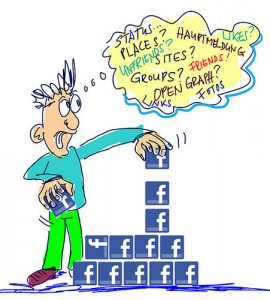
Used under Creative Commons license
Summer Howard, Staff Writer
All of us know people who inform others a little too much about their personal lives on social media sites such as Facebook, Twitter and Instagram. Even though the general consensus of social media users would say they find it annoying when people document the time of day they brush their teeth and or when they ate their breakfast, many of us are guilty of the same offenses. So what makes us inclined to share the specific (and sometimes boring) details of our lives with the entire social networking world when there can be serious repercussions?
No matter what age we are, we all crave some type of recognition or attention from our peers. Commenting on what is occurring in our lives through social networks creates a kind of anticipation in our beings; instead of just one or two people celebrating, mourning, laughing or ranting with us about a situation, anybody from our friends/followers to the entire network can be overjoyed or depressed for us. This gives us a kind of gratification because the more friends/followers that “like” or “favorite” our posts makes us feel as if we are important enough to be recognized by people. Therefore, we are given the illusion that we have more friends than we actually do. This illusion is a dangerous one, particularly for those of us who have a low self-esteem. It dupes us into believing we can talk about anything we want on social media and people will love our views or comments, when, in actuality, our posts can become a nuisance to those who read them.
But the excitement of being recognized on a larger scale is not the only reason why social media is dangerous. Facebook and Twitter are great ways of conversing with one another, especially when we do not have a person’s phone number. Instead of getting closer with the people we socialize with, however, these sites make it unnecessary to verbally talk or meet with our friends. Nothing can replace hearing the voices of our friends and reading their expressions while we converse with them. A part of socializing is lost when we cannot see others’ reactions to our comments, and it becomes difficult for us all to communicate when our only form of communication involves a keyboard and a screen.
The last reason that social media can be deemed dangerous is because of safety. Documenting every second of our lives could gain us an unwanted visitor: a stalker. With hackers becoming better and better as the amount of technology available to the public increases, it is not hard for dangerous individuals to access our social media accounts. If we are prone to give everybody a rundown on our daily routine, we are more likely to be targeted by hackers of this variety. Most people do not think of this threat to their safety because they believe it will never happen to them. It is important to take measures to secure our social networking accounts against unnecessary risk.
With all these dangers, what is our best plan of action to avoid these perils, then? The answer is simple: stop posting on social media and start living face-to-face.